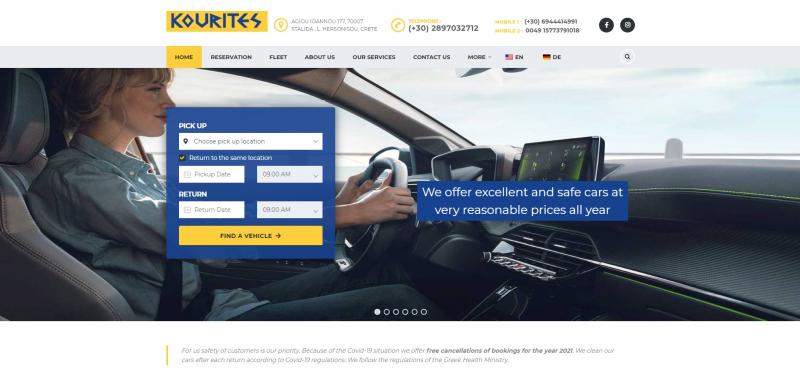The website of Kourites Car Rental in Crete, a car rental company based in Stalis, was published a few days ago,…
How to Create Contents That Get lots of Traffic

So, your company has a new website or is planning one. Congratulations! The process of designing, building and launching a corporate website can be tricky and tedious. To help you in that process, we made a list of functionalities that you must have… and some to avoid.
1) A logical architecture and plan. Before any design or line of code, you need to know how your website will work, how your visitors will find information, submit forms, go from pages to pages, etc. This information is also really important to search engines.
2) Important product or service information. Your website needs to display information that your visitors “want,” not what is most important to you, which can be difficult for some business owners and staff. It helps if you put yourself in the shoes of a first-time visitor to your own site. Don’t forget a “call to action” that encourages customers to embark on the process of doing business with you.
3) Contact information. We’ll never get tired of saying this: contact information is the most important information to display on your website! When a prospective customer wants to connect with you or buy from you, they need to find you first. Make sure your contact information is easy to find.
4) A clear navigation. In the same way that a map is useless without a legend, make sure you use menu and link names that are clear and easy to understand.
5) Think about security—your customers do. If you sell on the Internet, be sure you have a SSL certificate (to protect data as it travels between your customer’s computer and your website) and that your website team members are security experts.
6) Social media integration. Twitter, Facebook, YouTube, Google+, LinkedIn, Pinterest, Tumblr, Instagram, to name a few. Intoria can help you discover which ones are right for your business and how to use them.
7) A responsive website (one that is responsive to mobile and tablet devices). If you read our previous post, you know why you NEED a mobile and tablet-ready version of your website!
8) Frequently Asked Questions (FAQs). People always have questions. It’s always a good idea to show them and provide answers on your website; this will help your customers know about products, policies, warranties, etc.





